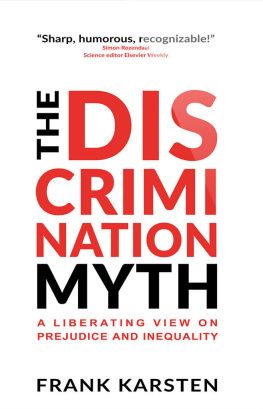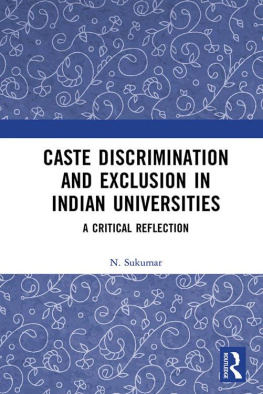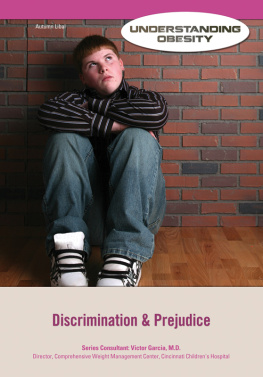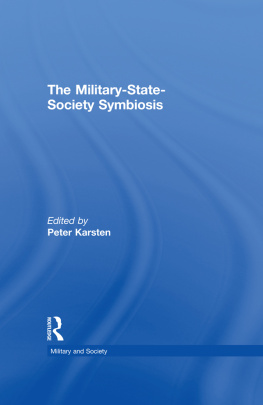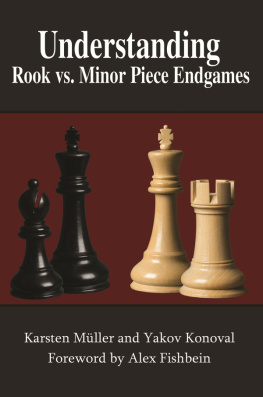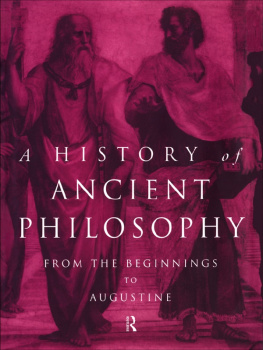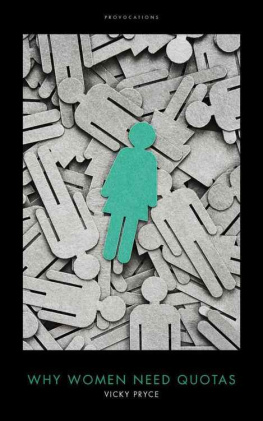The
Discrimination
Myth
Frank Karsten
The
Discrimination
Myth
The Discrimination Myth
First edition: February 15 th 2019
Version: 1.3 March 9 th 2019
Website: discriminationmyth.com
Proof reading by Aaron Kahland
About the author
Frank Karsten is founder of the MoreFreedom Foundation and co-founder of the Mises Institute Netherlands. Together with Karel Beckman he wrote Beyond Democracy, which is translated into 20 languages .

Acknowledgement
I want to thank Chris van Dijk, Neal Luitwieler,
Koen Swinkels, Evelien Bruins, Karel Beckman, Reinier Spreen, Markjan Mul and Aaron Kahland for their motivation and good advice while writing. The opinions expressed in this book are, of course, entirely my own.
Table of contents
Introduction
After two successful job interviews with an agricultural wholesaler in the Netherlands, the 25-year-old Bas was sure of getting the internship. But after the Christian owner of the company learned that he had a homosexual relationship, he was rejected because of his sexual orientation. A storm of indignation broke out on social media after he made it public. They didn't look at who I am but at what I am, Bas lamented. He filed a complaint and the court sentenced the company to a 1600 euro ($1850) fine. Naturally, the rejection frustrated Bas, but should the company have been obliged to hire him, contrary to the owner's religious convictions? And what if Bas had refused the internship for not agreeing with the company's religious beliefs?
There has never been so much to do about discrimination as today, while the issue was rarely raised in the past. With the help of young men from minorities, the Dutch city of Breda carries out an annual check on discrimination in the local bars and clubs. The United Nations believes that we should speak of 'pregnant people' rather than 'pregnant women' in order not to exclude transgender people. A Dutch drugstore chain was reproached by the Human Rights Council for alleged discrimination, as one of its branches refused to personally assist a blind customer through the store.
Woe betide those who are guilty of what others regard as racism, sexism or any other form of discrimination. To imitate an Indian accent, to tell a sexist joke, or to mention a difference between population groups, if you have to rely on the fierceness of the reactions, it seems it's a capital offence and it's the prelude to hatred and violence. Expressing a discriminatory opinion can result in a fine or cost you your job. Sites such as Facebook, Twitter, MailChimp and Patreon (a donation platform) can delete your account. Countries can deny you entry for discriminatory statements, even if you have never been convicted of anything. In extreme cases, you even end up in jail.
Many are therefore doing their utmost not to discriminate and worry whether they are doing the right thing. Did I make sure we have enough diversity? Have I offended any group in society? Does saying this or that make me a racist? Increasingly, we have to walk on egg shells in order not to be accused of discrimination.
Nevertheless, more than ever, groups in society seem to be polarized, not only socially but also politically. New political parties such as Denk, Bij1 and FvD regularly clash on this sensitive subject. During the Dutch Saint Nicholas processions things can get tense when activists protests against black faced Black Pete. In the United States, millions of people protested in the Women's March one day after the inauguration of the 'sexist president Trump'. Never before in American history have so many people protested for the same cause, on the same day.
There's a real chance that the fierce fight against discrimination that is currently taking place will lead to division rather than to unity. It does little good for society and our discussions if people who tell a wrong joke, mention group differences, or simply follow their preferences, are placed in the same category as Nazis or Ku Klux Klan members.
How did we get here? Is there really so much discrimination in society, or has its definition been stretched? Is discrimination really so immoral and do we need government to combat it with fines and prison sentences?
Debates on discrimination are intense and emotional. There is, however, a great deal of uncertainty about what discrimination is. Everyone seems to know it right away, but hardly anyone can explain it properly. There is clearly a need for a more principled discussion.
This book looks at this despised phenomenon in a rational way. It structures the different types of discrimination, it dispels myths and it defies deeply rooted beliefs. It doesn't deny the existence of discrimination; to the contrary, but it argues that many social differences don't have to be the result of structural exclusion and marginalisation.
This is also one of only a handful of books in the world that defends the right to discriminate. It firmly stands for the freedom of association, the freedom of individuals to decide for themselves who they trade, interact or spend time with. It argues that the State should not prohibit citizens from excluding people, firstly because it undermines individual freedom and, secondly, because it's counterproductive. Moreover, this book explains how all kinds of well-meaning government policies actually foster discrimination, and how we can reverse this. Only if we deal with this issue in a rational manner can we prevent good intentions from leading to bad results.
This book is aimed at all goodwilled people who don't regard themselves as an evil racist or sexist, but who think accusations are often too easily made. People who look back with horror on slavery and colonialism, but at the same time believe that both can't possibly fully explain the different social outcomes in society.
A thought police is roaming the Western world, checking upon everyone's actions and speech. Accusing people of being racist, sexist, homophobic, etcetera is a technique by which militant groups can intimidate others and silence them. As a result, these groups have much more political and social clout than their small number should justify.
Once accused of discrimination, people often don't know how to defend themselves. Few people dare to stand up for them out of fear of also being targeted themselves. Often people don't realize that those who criticize others harbor their own prejudices, they also generalize, and also exclude, but for different reasons and towards others (see Myth 7). Apparently, there are groups and individuals in society who may determine when discrimination is justified and when it is not, and these are usually the loudest voices. Those who call out this hypocrisy are accused of belonging to the dominant group and therefore have no right to speak. The term for this phenomenon is 'identity politics', the idea that your political opinion and the right to speak depend on your identity as a man or woman, on your ethnicity, religion, sexual orientation, and so on. The irony is however, that this itself is racist and sexist.
This book supports those who feel gagged because they have been accused of the slightest racism or sexism. It provides the necessary ammunition for the discussion to be conducted on better grounds and to be able to withstand all kinds of exaggerated attacks. But it's also intended for members of the Thought Police, the Social Justice Warriors (SJWs), who don't seem to understand that their fierce crusade against discrimination is counterproductive.
Disclaimers
You might think that someone who writes a book defending the right to discriminate is probably a hateful person. That is not the case. I wish everyone respect, happiness and prosperity, regardless of their skin colour, orientation or gender. Defending the right to discriminate is completely different from personally approving all discrimination. Similarly, anyone who defends freedom of expression doesn't thereby approve all opinions either.
Next page
